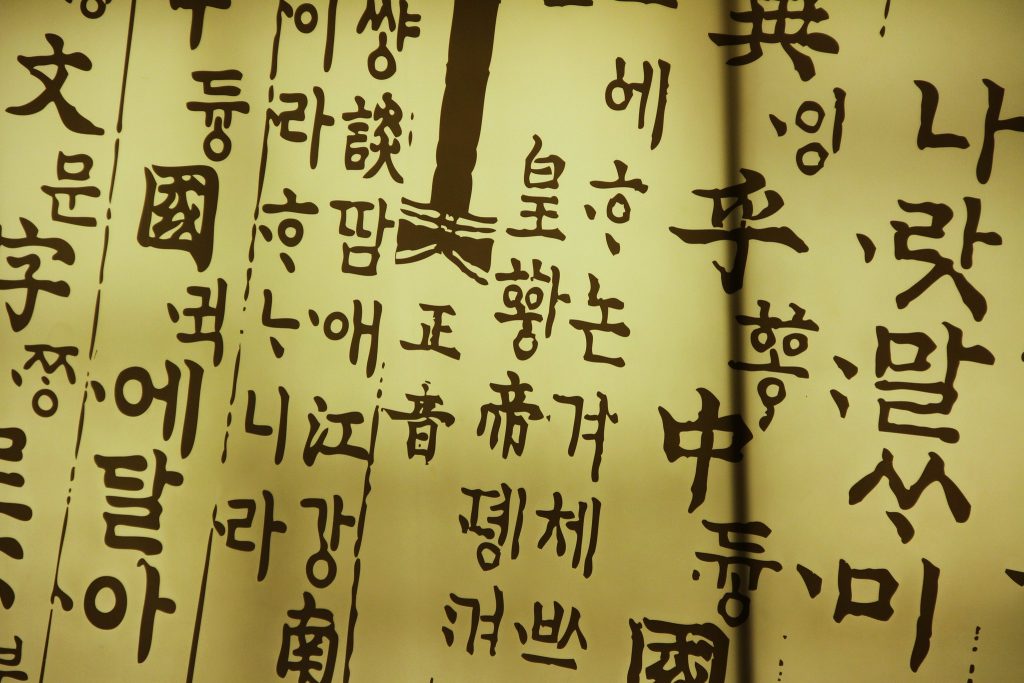
In recent years, there are popular debates regarding two main linguistic policies in Korea, one is known as the exclusive use of hangeul which is solely using the Korean alphabet, hangeul. And the other is using hangeul along with Chinese Characters, which is characterized by a mix of hangeul and Chinese characters in writing, whenever Chinese characters are applicable.
Some advantages for the exclusive use of hangeul are that it is easy and convenient to learn and enhances the national pride of the Korean people. Its disadvantages could be that it can be difficult to tell the meaning of words in the cases of homonyms. On the other hand, advantages for using hanegul along with Chinese characters can be that the exact meaning of certain texts is accurately conveyed, and knowledge in Chinese characters may enrich people’s comprehension skills. One disadvantage could be that they are time-consuming to learn.
Advocates of the joint use of hangeul and Chinese characters argue that one cannot fully understand the Korean text without knowledge of Chinese characters. This is partially due to the presence of homonyms in hangeul. For example, ”body fat” and ”countryside” are both jibang, and ”doctor” and ”intention” are both uisa in Korean. Homonyms may be confusing in certain cases but most of their meanings are identifiable through context. One may also argue that the exact meaning of the Korean language is only conveyed through Chinese characters, since the Korean people have used them extensively until recent history, but there are certainly specialists of Chinese characters readily available to translate or elaborate.
While Chinese characters are time-consuming to learn, requiring dedication and continued practice, hangeul is recognized as one of the easiest languages to learn to write. Exclusive use of hangeul also lowers the illiteracy rate of the country. Furthermore, the study of Chinese characters can be done as an extracurricular activity. Hangul is a unique and logical alphabet founded on scientific grounds by King Sejong himself. Not only did it successfully lower the illiteracy rate to almost 0%, but it was also continuously praised by scholars and linguists for its brilliance. Hangul also fosters a sense of national pride and identity and unites the Korean people as one. Thus, the exclusive use of hangeul is the most common policy in Korea today.
Written by: Yini Lin.
From Hawaii, United States. University of Hawai’i at Mānoa Class of 2021. B.A. Candidate in Korean Language Flagship. B.A. Candidate in Asian Studies. Exchange student at Korea University. Intern at VANK (Voluntary Agency Network of Korea)